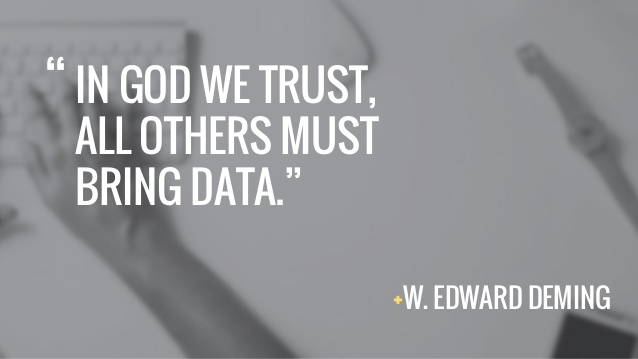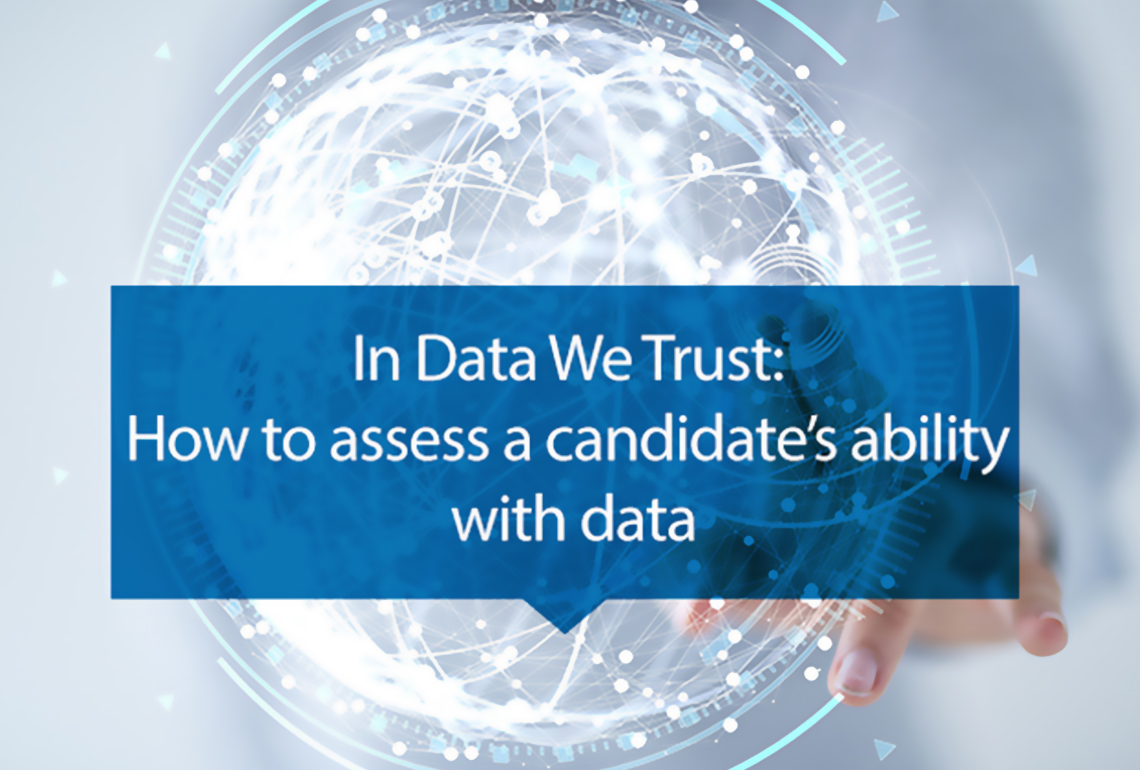It’s an extremely data-driven time in a business right now; this past May, The Economist even noted that data was a more valuable global resource than oil. The collection of information about individuals and companies has been on the rise in the last decade — some argue 90% of the world’s data has been created in the past two years — and it’s easy to look at the most valuable companies in the world today and understand the monetary importance of data. Those would be Apple, Amazon, Facebook, Microsoft, and Alphabet (Google). All have very data-driven approaches. All are raking in money. And yes, they do many other things and have many products, but the data underscores many of their revenue streams. (How do you think Facebook Ads are effective for brands?)
You may have seen or heard this quote:

It’s said a lot of meetings at companies of all sizes these days.
So what does the data revolution mean for technical hiring?
The importance of data-centric candidates rises
This is only natural. Data is such an important force and business concept that everyone is clamoring for data-related talent. In fact, near the beginning of 2017, a GE talent leader who helped build out an entire plant near Cincinnati discussed where he thought hiring trends were headed. His No. 1 skill he assesses in candidates for any role, even ones without a huge data component?
Ability to discuss and crunch data.
Similar vein: IBM believes the demand for data scientists will grow 28% by 2020.
As with many technically-specific roles, there is a shortage of elite skill in the market around data analytics too. Organizations need more “data-centric” employees, and ideally, they need the best ones possible.
But now we come to another question to consider: how are we vetting these data analytics candidates?
The mistake we’re making vetting candidates for data roles
Let’s do a quick example visually. Suppose you saw this in a presentation:

It looks nice and interesting, and you can tell that it’s a graph and numbers are involved. So clearly this represents “data” at some level.
But what is it saying?
And you’re a busy executive, can someone tell you what it’s saying and what means for business decision-making in about a minute or less?
This is the chasm with data hiring right now. Some organizations are focused too much on the collection/analysis side of the skill set, which is crucial.
But it’s also crucial to be able to explain data back to people in an easy to consume manner, especially decision-makers.
Data that’s just collected, analyzed, and sorted into presentations only gets about 70% of the way there as an effective business tool — for the final 30%, it needs to be explained to someone who can make decisions, contextualized in the business model, and potentially paired with different outcomes they can choose from.
Now your data is tied to decision-making, which should be the point of having the data in the first place. To make sure that happens, though, we need to hire better around data roles.
2 crucial keys to understanding your top data candidates
Curiosity, Data and Concept
First, does the candidate understand the programs, collection methods, concepts, and fundamentals of working with analytics? Does the candidate have an inherent drive for curiosity? Do you as the hiring manager feel the common sense bell chiming as they talk through their analysis of the presented problem?
Can the candidate tell the story of your presented problem in a way that creates a solution? You as the hiring manager must be able to understand the candidate’s ability to bring multiple teams together on important business priorities.
Can the candidate lawyer up and defend?
Secondly: can they explain their outcomes? Can they defend when pushed on methods of acquiring, scrubbing, or analyzing data? Can they articulate the complex in terms that someone not as familiar with data vocabulary will understand?
Effective candidates bridge the gap between “pure data scientist” (collects and analyzes) and “business data analyst” (analyzes, contextualizes, conveys up the hierarchy).
Data can be confusing. It has its own terminology and not everyone running companies did well in Advanced Statistics or other analytically-minded classes. They might not completely understand what’s in front of them. What they need to know for their role is: What does this mean for my business going forward? If they can’t immediately understand or see that, the data team needs to have the ability to move them towards options.
That’s a crucial connective step, and it needs to be reflected in how you go about hiring for data-centric roles.

William Tincup
William is the President of RecruitingDaily. At the intersection of HR and technology, he’s a writer, speaker, advisor, consultant, investor, storyteller & teacher. He’s written over 200 HR articles, spoken at over 150 HR & recruiting conferences and he’s conducted over 1000 HR podcasts.







